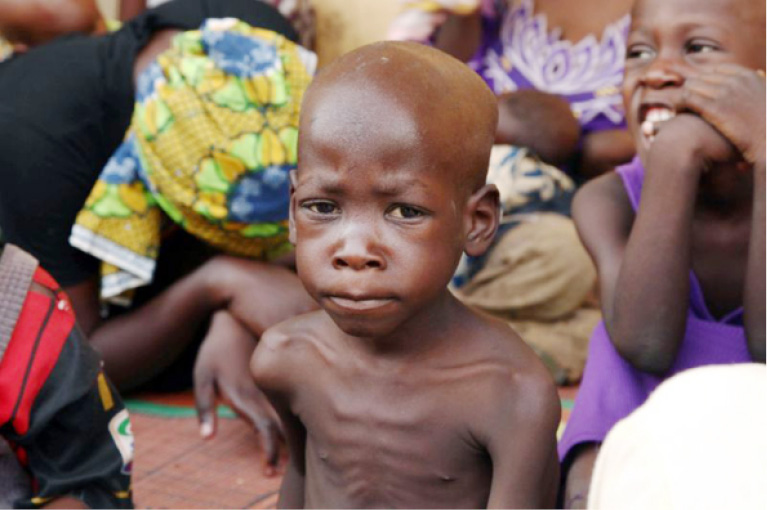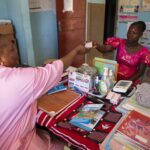Memuna Umar, 32, is a widowed mother of a child under five suffering from Severe Acute Malnutrition (SAM).
She said her child was diagnosed with the condition at the General Hospital, Kwali, Federal Capital Territory (FCT).
- 2023: Wake up call to Nigerian women
- Airport attack: Nigeria experiencing Afghanistan situation – Afenifere
She said she earns a very small income from her farming and petty trading but she is unable to effectively take care of the family as well as the needs of her sick child.
“My husband is dead, my parents are dead too. I don’t have money to buy the requisite medicines and nutritious food for my little child,” she lamented.
Abomi Ahmadu, also in her 30s has a child who suffers from Sickle Cell Disease (SCD). Over time the child is now also suffering from SAM.
She said she was initially doing a little business but as a result of the cost of treatment for the child, the business ran aground, adding that she could no longer provide the child nutritious meals let alone his medicines.
She added that if she is empowered with some skills and seed money she would be able to start a business, treat the sick child and also prevent her other children from getting malnourished.
Hajara Aliyu, a community mobiliser in Kwali said economic empowerment of women in the community would go a long way in preventing and reducing the burden of SAM in the area.
The rising insecurity, attendant loss of livelihoods and displacement within the Federal Capital Territory (FCT) and border states have been increasing malnutrition in children under the care of mothers who earn little or no income.
Findings reveal that poverty and ignorance have continued to fuel SAM cases among vulnerable mothers and their children in Kwali.
The women told Daily Trust that they have been suffering untold hardships to feed their children and make hospital visits.
They said they were excited to learn new skills so they could meet the basic needs of their pre-school children.
UNICEF estimates that 2.5 million children below five years suffer from SAM every year with about 420, 000 deaths recorded.
According to nutrition experts, SAM is a life-threatening condition affecting millions of Nigerian children every year.
They said the economic empowerment of vulnerable women, and nutrition education is crucial to reducing malnutrition.
The Executive Director of the International Society of Media in Public Health (ISMPH), Moji Makanjuola, said SAM is still a major health challenge in Nigeria, and that unknown to many, children in the FCT suffer from the condition.
She said her organisation has commenced a programme aimed at reducing incidences of SAM through the economic empowerment of identified vulnerable mothers in Bwari and Kwali area councils.
She said the programme, which is funded by the European Union-Agents for Citizen Driven Transformation (EU-ACT), is also empowering vulnerable mothers with improved nutritional knowledge and access to information on SAM.
Makanjuola said the project targets mothers from low-income households in vulnerable communities, uneducated, unemployed, single rural dwelling mothers and mothers living with disability and struggling to provide care for their children.
She said the empowerment of women would in turn improve the nutrition of pre-school children in vulnerable communities.
ISMPH’s Director of Programmes, Solomon Dogo, said empowering women would include equipping them with skills to create marketable products from waste items.
He said it also includes sensitization on basic nutrition for children and business strategies that will enable them to create sustainable ideas while providing helpful knowledge for the benefit of their severely malnourished children.
Memuna, the widowed mother, said she participated in a sensitization exercise organised by ISMPH in Kwali.
While saying it improved her knowledge of the prevention of SAM, she added that if she is empowered with skills and a little capital, she would start a business and have a steady flow of income to take care of her child.
The Esu of Kwali, Alhaji Shaban Audu Nizazo, expressed gratitude to ISMPH and its donors for choosing to empower vulnerable women in Kwali Area Council.

 Join Daily Trust WhatsApp Community For Quick Access To News and Happenings Around You.
Join Daily Trust WhatsApp Community For Quick Access To News and Happenings Around You.


